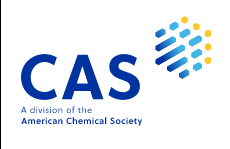The IT Medical Team is an international, open access source for medical, clinical and pre-clinical research. It aims to publish the highest quality material, both clinical and scientific, on all aspects of medicine. It includes articles related to research findings, technical evaluations, and reviews. In addition it provides a forum for the exchange of information on all aspects of medicine, including education issues.
The published manuscripts are made highly visible to the scientific community through a wide indexing. Hence, they can freely be accessed and utilized by everyone for the development of science and technology.
The journal maintains an Editorial Board of practicing researchers from around the world, to ensure manuscripts are handled by editors who are experts in the field of study.
Author(s) is relied upon to be responsible for the displayed information and data in their manuscript alongside assuming the liability of the importance. They are expected to introduce original result of their research..
Editors should protect the reputation of their journal(s) and published work by only publishing content of the highest quality and relevance in a timely and responsible manner. The Editor is in charge of maintaining the mission..
Reviewers should not share any information from an assigned manuscript with outsiders without the prior permission from the Editor or preserve the data from an assigned manuscript.
| Journal impact factor | 3.58 |
| Journal h-index | 17 |
| Journal cite score | 4.25 |
| Average Acceptance to publication time (5-7 days) | |
| Average Article processing time
Less than 5 volumes 30 days 8 - 9 volumes 40 days 10 and more volumes 45 days |
|
| Journal impact factor | 26.99 |
| Journal h-index | 51 |
| Journal cite score | 46.50 |
| Average Acceptance to publication time (5-7 days) | |
| Average Article processing time
Less than 5 volumes 30 days 8 - 9 volumes 40 days 10 and more volumes 45 days |
|
| Journal impact factor | 3.75 |
| Journal h-index | 18 |
| Journal cite score | 4.35 |
| Average Acceptance to publication time (5-7 days) | |
| Average Article processing time
Less than 5 volumes 30 days 8 - 9 volumes 40 days 10 and more volumes 45 days |
|
| Journal impact factor | 0.82 |
| Journal h-index | 6 |
| Journal cite score | 0.94 |
| Average Acceptance to publication time (5-7 days) | |
| Average Article processing time
Less than 5 volumes 30 days 8 - 9 volumes 40 days 10 and more volumes 45 days |
|
| Journal impact factor | 4.09 |
| Journal h-index | 14 |
| Journal cite score | 3.77 |
| Average Acceptance to publication time (5-7 days) | |
| Average Article processing time
Less than 5 volumes 30 days 8 - 9 volumes 40 days 10 and more volumes 45 days |
|
| Journal impact factor | 4.11 |
| Journal h-index | 18 |
| Journal cite score | 5.91 |
| Average Acceptance to publication time (5-7 days) | |
| Average Article processing time
Less than 5 volumes 30 days 8 - 9 volumes 40 days 10 and more volumes 45 days |
|


































